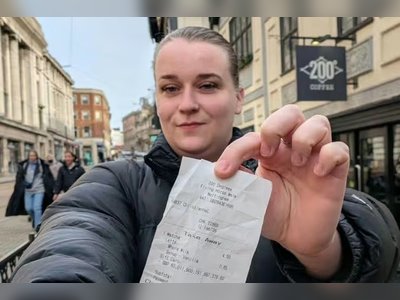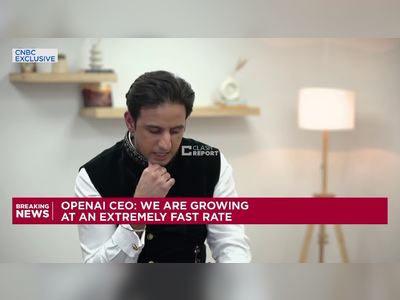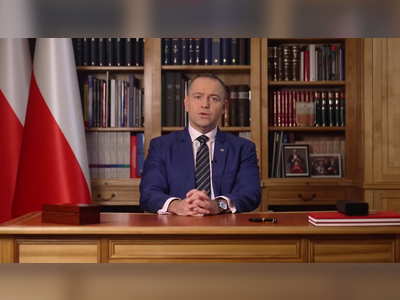Dutch Court Hands Down 30-Year Sentence and Involuntary Commitment for Alblasserdam Farm Attacks
John S. convicted of triple murder in shocking case that highlights mental health concerns and public safety.
In a landmark ruling, the Dutch court has sentenced John S.
to 30 years in prison, coupled with mandatory psychiatric treatment (TBS), for his involvement in a sequence of chilling murders.
The judgment, handed down on appeal, confirms the gravity of the offenses committed by S., who was found guilty of the 2022 shootings that claimed three lives, including a young girl at a care farm in Alblasserdam.
The incidents began on May 4th, 2022, when John S.
used his newly acquired firearm to fatally shoot a shoemaker in Vlissingen.
His disturbing rationale was simply to test the efficiency of his weapon.
The horror escalated two days later when S.
turned his gun on a care worker and a teenage girl at the Tro Tardi care farm in Alblasserdam.
Following these events, S.
contacted authorities himself from a nearby park and confessed to the shootings.
The prosecution initially sought a 30-year prison term with TBS, a psychiatric measure often employed when offenders are deemed a continuing threat.
However, the trial court originally imposed a life sentence, a decision grounded in the belief that only an indefinite term could serve justice for the egregious nature of the crimes.
This decision allowed S.
to appeal for re-evaluation after 25 years, a prospect the prosecution deemed too hazardous, prompting an appeal.
At the heart of the appeal was an assertion by prosecutors that S.
represented a profound threat due to his mental instability.
Expert assessments from the Pieter Baan Centre concluded that S.
had diminished responsibility at the time of the offenses, underscoring a high likelihood of recidivism.
These insights informed the court's decision to mandate close supervision through TBS following the completion of his prison term.
The court’s ruling deemed the crimes so heinous that they necessitated a punishment with a strong emphasis on retribution.
"Your actions have not just victimized individuals but have instilled fear across society," pronounced the presiding judge.
As the case reverberates nationally, it spotlights the intricate balance between justice and mental health considerations in the legal system.
The court’s decision underscores an urgent call for stringent public safety measures, bolstering the argument for rigorous oversight and rehabilitation for individuals identified as high-risk reoffenders.
to 30 years in prison, coupled with mandatory psychiatric treatment (TBS), for his involvement in a sequence of chilling murders.
The judgment, handed down on appeal, confirms the gravity of the offenses committed by S., who was found guilty of the 2022 shootings that claimed three lives, including a young girl at a care farm in Alblasserdam.
The incidents began on May 4th, 2022, when John S.
used his newly acquired firearm to fatally shoot a shoemaker in Vlissingen.
His disturbing rationale was simply to test the efficiency of his weapon.
The horror escalated two days later when S.
turned his gun on a care worker and a teenage girl at the Tro Tardi care farm in Alblasserdam.
Following these events, S.
contacted authorities himself from a nearby park and confessed to the shootings.
The prosecution initially sought a 30-year prison term with TBS, a psychiatric measure often employed when offenders are deemed a continuing threat.
However, the trial court originally imposed a life sentence, a decision grounded in the belief that only an indefinite term could serve justice for the egregious nature of the crimes.
This decision allowed S.
to appeal for re-evaluation after 25 years, a prospect the prosecution deemed too hazardous, prompting an appeal.
At the heart of the appeal was an assertion by prosecutors that S.
represented a profound threat due to his mental instability.
Expert assessments from the Pieter Baan Centre concluded that S.
had diminished responsibility at the time of the offenses, underscoring a high likelihood of recidivism.
These insights informed the court's decision to mandate close supervision through TBS following the completion of his prison term.
The court’s ruling deemed the crimes so heinous that they necessitated a punishment with a strong emphasis on retribution.
"Your actions have not just victimized individuals but have instilled fear across society," pronounced the presiding judge.
As the case reverberates nationally, it spotlights the intricate balance between justice and mental health considerations in the legal system.
The court’s decision underscores an urgent call for stringent public safety measures, bolstering the argument for rigorous oversight and rehabilitation for individuals identified as high-risk reoffenders.











